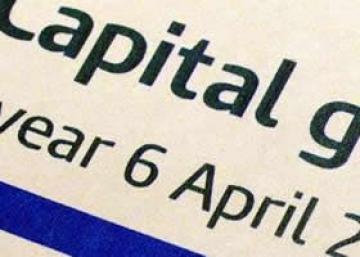Capital Gains Tax for non-UK residents may have to be paid if your UK assets reported a gain during the tax year.

Remember, you should always seek qualified advice with regards to any tax matter, including understanding your UK residency status.
Overview of Capital Gains Tax
Capital Gains Tax is the tax which is levied on gains, or profit, from the disposal of an assets, such as a property or shares.
There is an allowance before Capital Gains Tax is due, for tax year 2014/15 was £11,000. This figure has been raised to £11,100 in the current tax year (2015/16) which began on April 6th, 2015.
The rate of Capital Gains Tax depends on your tax band. If you are in the basic rate tax band, you will normally pay Capital Gains Tax at a rate of 18%, but if you are in the higher tax band the Capital Gains Tax Rate is 28%.
You will not have to pay Capital Gains Tax on all gains, for example you typically won’t have to pay the tax on gifts (to charities or between husband or wife), the sale of your primary home, private car sales, possessions worth no more than £6,000, winnings from lotteries or some savings such as ISAs or NS&I products.
However, this this is not exhaustive and you should always seek advice if you are unsure if you could be liable for Capital Gains Tax before submitting your UK tax return.
Capital Gains Tax for non-UK residents
Whether or not you have to pay Capital Gains Tax if you live outside the UK will depend on a number of factors, the first of which being whether you are viewed as a UK resident or non-UK resident.
Simply living outside the UK will not necessarily mean you automatically become a non-UK resident.
To help clarify whether an individual was a UK resident or not, in 2013, the HMRC introduced the Statutory Residence Test for people who spend significant amounts of time outside of the UK. The test is comprised of three main elements, each of which will determine your UK residency status.
The amount of Capital Gains Tax you have to pay will depend on your personal circumstances and you should always seek advice to ensure you pay the correct amount.
Whether or not you are a non-UK resident, you may also be liable for Capital Gains Tax in your country of residence, so you should always seek advice from a local tax adviser to ensure you meet local tax laws.
Double Taxation Treaties
If there is a double taxation treaty between your country of residence and the UK, you will not have to pay Capital Gains Tax in both countries.
New Capital Gains Tax rules for non-UK residents with property in the UK
It used to be the case that if you had one property in the UK, but were a non-UK resident and you sold that property, you would not be liable for any Capital Gains Tax on the sale. However, as of April 6th 2015 a new rule was introduced which saw this loophole closed.
Key elements to consider with regards to the rule change include:
- What is the value of your property as of April 6th 2015?
- Will the capital gains still fall within your tax allowance?
- What are the capital gains from the sale of the property (i.e. how much was it bought for and how much is it worth)?
- Is it worth taking advantage of rising UK house prices before the new rule comes into play?
- If you are considering buying a UK property, you should factor in Capital Gains Tax if your purchase is as an investment
To get the latest news and to get a full evaluation of your situation, you should request Capital Gains Tax advice from a qualified tax adviser.
Capital Gains Tax declarations when selling residential property as a non-resident
Since the new rules came into force in April 2015 as a non-resident, when you sell a UK residential property you must tell the HMRC, even if you have no capital gains tax to declare. This also applies if you are selling, or have sold, your main residence.
Failure to correctly make a capital gains tax declaration to the HMRC within 30 days after conveyancing (transferring ownership of) your property is likely to result in a penalty – even if there is no capital gains tax to pay.
We always recommend that you seek professional advice before finalising any declaration or capital gains tax calculation.
Request Capital Gains Tax advice for Non-UK Residents
If you are unsure about your Capital Gains Tax liability, please seek advice from one of our expert tax advisers who will conduct a initial free consultation with you.
To request your free consultation, simply enter your details via the form and we will arrange for our best tax adviser to contact you.
